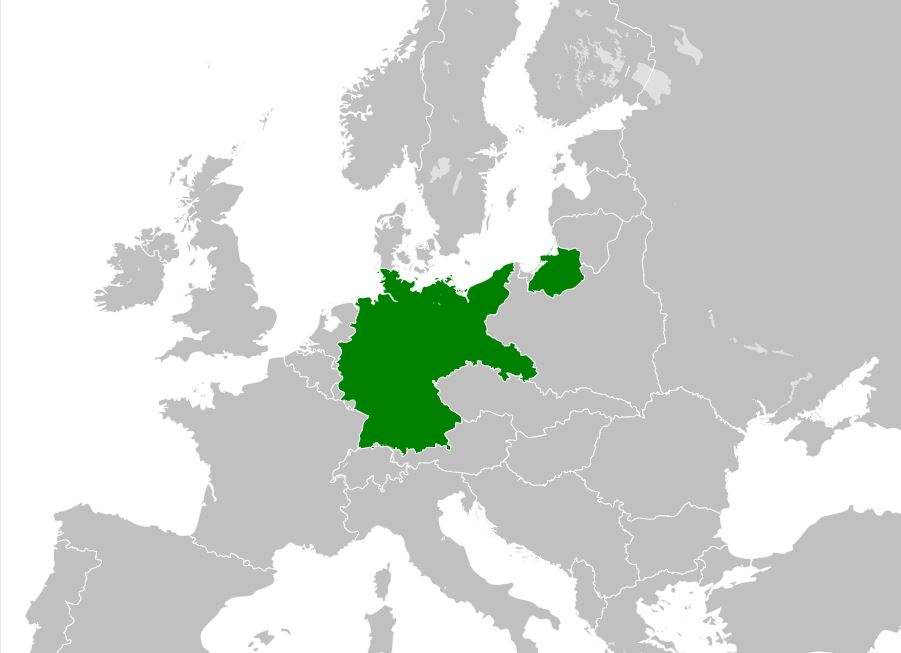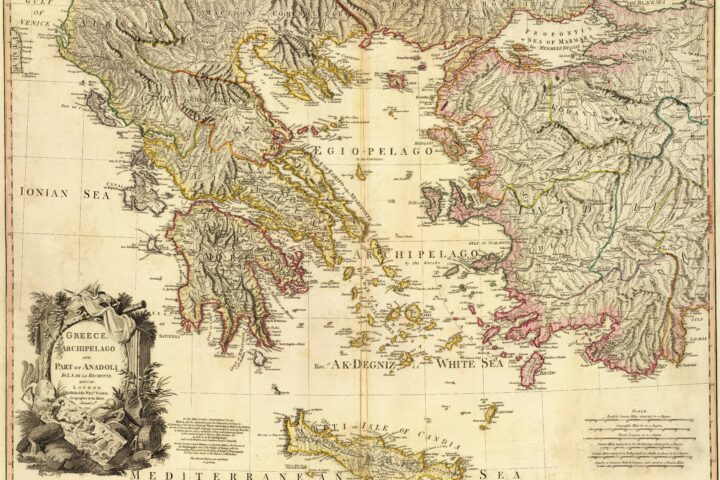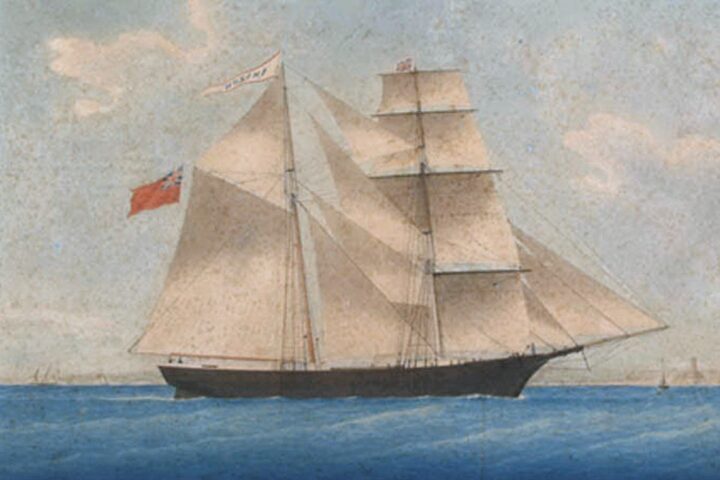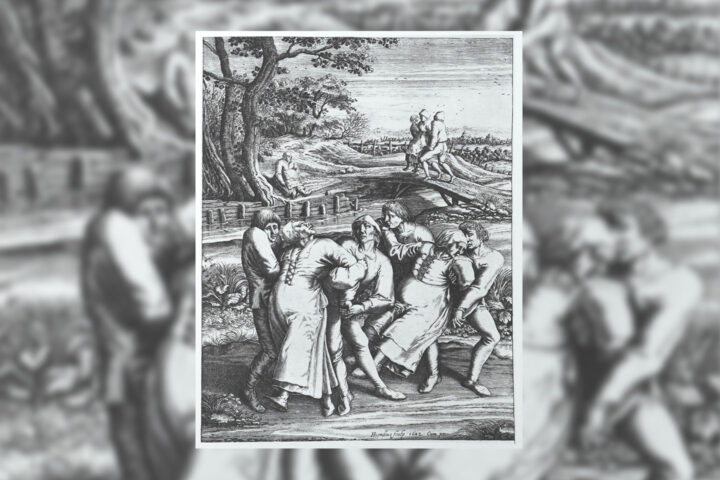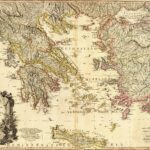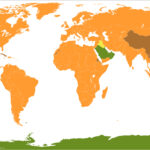Source: By Blank_map_of_Europe.svg maix_wikimedia_17137094
Introduction
The history of the Weimar Republic, or the first legitimate democratic attempt in Germany, is something that touches on many people’s hearts. Dating back from the maelstrom after World War I, it was a nation born of defeat, economic ruin, and terrific turmoil in society. It managed to live a very perpendicular life—full of political instability, economic catastrophes, and the rise of extremism—until it climaxed in the arrival of Nazism. This article delves into the nuances of the Weimar Republic: birth, challenges, and eventual collapse.
The Birth of a Nation in Crisis
The cruel peace Treaty of Versailles set upon Germany in 1919 laid at the very foundation of the struggles of the Weimar Republic. The reparations were punitive, parts of territory were lost, and the ‘war guilt’ clause, particularly in its first article, was to go very deeply into the German character. The whole scenario of economic collapse, hyperinflation, and rampant poverty became a state of normalcy purposely fomented for the break loose of socialism discontent and radical ideologies.
The Weimar Constitution of 1919 had been a progressive document for its time. It provided for a parliamentary system, universal suffrage, and civil liberties. Still, the general outline severely lacked the ability to clean the stable of the Augean stables let loose by war and defeat. The political community was fragmented with large numbers of parties struggling for hegemony, and the weak, non-unified political leadership only helped in frequent governmental instability.
The Economic Nightmare
Hyperinflation, the most dramatic economic crisis of the Weimar Republic, had the most destructive effect on the middle class and sapped public confidence in the government. The devaluation of the German mark deactivated savings and issued a general feature of economic hopelessness. The psychological shock caused by the hyperinflation was unprecedented because it shook people’s faith in money and the inviolability of the state’s system of economic government.
The government’s efforts to stabilize the economy through austerity and reform did not have an impact. The global economic depression of the late 1920s only magnified the situation, with increased unemployment and social unrest. The economic crisis perfectly gifted extremist parties in general and the Nazis in particular; they promised a path back to economic salvation and national greatness.
The Rise of Extremism
The fevered opposition from the far-left and far-right had to be coped with by the Weimar Republic. Drawing much support from the working class and the disillusioned citizens, the Communist Party actually set up a bigger threat to democratic order. Violent conflict between communists and right-wing paramilitary groups became part of everyday reality, and the result was a fearful and unstable atmosphere.
But the most successful was the National Socialist, or Nazi, Party. Under the leadership of the charismatic Adolf Hitler, it mobilized behind common fears and resentments of economic hardship and rising communism to build a mass movement based on eight million votes in 1930. How did this appeal come to be, and for whom? Hitler’s reply was always the same: “The German people are the greatest sons of the German nation.”
The Decline and Fall
Inefficient response to the economic crisis and radicalization during the Weimar Republic created a fertile political climate for authoritarian takeover. The government’s use of the powers it depended on to run the republic, to maintain order, destroyed democratic institutions, and weakened the rule of law.
The Reichstag Fire of 1933 enabled the Nazis an opportunity to assume power. Hitler was appointed Reich Chancellor, and with that act, the Weimar Republic was deposed. The Nazi dictatorship staked its claim as a totalitarian state through the opposition it faced, the persecution of minorities, and with the path chosen toward war—a war that eventually spilled over and became known as World War II.
Lessons of the Weimar Republic
The fall of the Weimar Republic, with the possible consequences of economic policy indecisiveness, political polarization, and the collapse of democratic institutions, is a stark reminder of the imperative need for good leadership, economic coherence, and social cohesiveness to be in place in order to sustain a robust democracy.
Critical factors in the downfall of the Weimar Republic were the rise of extremism and the inability to deal with the underlying causes of discontent. The lesson from the Weimar experience thus endures—a constant reminder of democratic fragility and the cost of doing nothing in moments of crisis.
The Social and Cultural Climate
The Weimar Republic was a time of huge social and cultural dislocation. The war had shattered the traditional social order, and the subsequent economic and political turmoil exacerbated social divisions even further. The inundation of war veterans, many of them physically and psychologically maimed, put additional strain on the nation.
The Emergent Art and Culture Scene Reflected an Epoch of Turbulence: Expressionism, Dadaism, and New Objectivity emerged as the major artistic movements that tried to grasp the horrors of war and the insecurities derived from the present. The Weimar Republic became a major spot for intellectual and artistic fermentation, hosting figures such as Albert Einstein, Walter Gropius, and Bertolt Brecht. However, the culture did not just result in vibrancy but also left the people in a developing sense of alienation and a feeling of disillusionment.
The Role of the Military
The German military, though defeated in battle, was still a potent player in Weimar society. With deep-seated reactionary and anti-democratic beliefs, the army harbored an innate disgust for the Republic accepting the Treaty of Versailles. The military-industrial clique proved to still be a very potent determinant in economic and political life.
The military’s backing allowed extremist groups, especially the Nazis, to become increasingly powerful. The former officers and soldiers who entered the Nazi Party provided essential organizational abilities, discipline, and a clear sense of direction. The military’s role in Hitler’s failed coup, or the Beer Hall Putsch of 1923, highlights the military’s contribution to the instability of the Weimar Republic.
The International Context
The situation at this moment was complicated and unfriendly.
The Versailles Treaty had created bitter enemies to it, and the republic had begun facing problems of economic isolation. The final blow was delivered when the Ruhr was occupied by French and Belgian troops in 1923.
In addition, the answer may partially be traced back to the Dawes Plan and Young Plan, international treaties developed with the aim of rescheduling German reparation payments; inadequately founded, these were merely palliatives. In 1929 the Great Depression struck, and it aggravated Germany’s economic and political instability.
The Weimar Republic lacked effective leadership. A divided and fragmented political arena, with many parties vying away power and allegiance in desperate attempts, and no charismatic strong leader to galvanize and unite the country in allegiance, confidence, and strength only prepared a weak government.
Presidents Paul von Hindenburg and Friedrich Ebert were kind-hearted men but too weak in their political acumen and decisiveness. They had used their emergency powers quite often to set the state on an even keel, which had badly eroded democratic establishments, and further opened the way to authoritarian rule.
The Lasting Heritage
The collapse of the Weimar Republic remains a sordid reminder of the fragility of democracy. Failure to address post-war economic, social, and political challenges opened up space that was eventually commandeered by extremist ideologies. Some of the legacies from the Weimar Republic are still the ones influencing debates on the nature of democracy, the pitfalls of populism, and the significance of economic stability.
The cultural and intellectual achievements of the Weimar Republic left a lasting mark on science. The Bauhaus school of architecture, works by writers like Thomas Mann, and contributions by scientists like Albert Einstein are ever inspiring and really affect the world even now.
Thus, the Weimar Republic can be conceived of as the most complex and tragic period in history. Its fate is exemplary for the outcomes of crises within the economy, politics, and extremism development. One could only wish that these insights into the factors that played into the downfall of the Weimar Republic give us a way to heighten our understanding of the challenges our democracies face today and work to avoid such tragedies in t
Sources:

